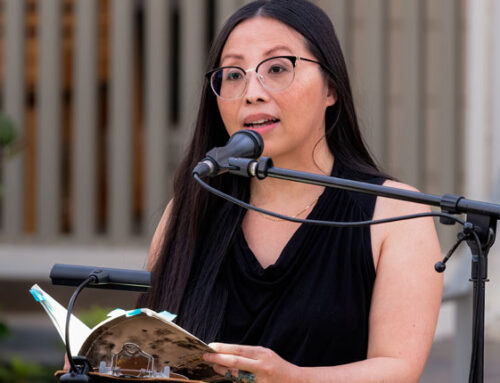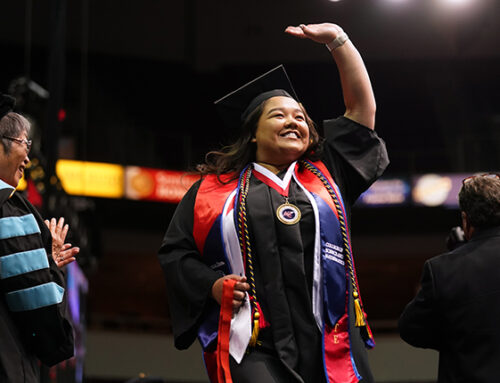According to a new survey of the San Joaquin Valley conducted by the Institute for Leadership and Public Policy at Fresno State, there is a large gender gap in support of Congressional candidates for the two major parties. Half of female registered voters said they would support the Democratic candidate, while only one third of male registered voters would, a gap of 17 percentage points.
The findings in the report are based on a random sample of registered voters from the San Joaquin Valley. The survey was conducted Feb. 5 through Feb. 15, and has a margin of error of plus or minus 3.9 percent.
“Women have historically voted for Democratic candidates at a higher rate than men, but we have seen that gap increase both in polling and in election results nationwide over the last year,” said Dr. Lisa Bryant, political science assistant professor and director of the survey. “This increase is likely related to recent events such as the Women’s March and the #MeToo movement.”
Overall, 42 percent of registered voters in the Valley say they would support the Democratic candidate, while 39 percent would vote for the Republican candidate, a gap of just 3 percentage points. The difference is the same as the 3-point advantage Democrats have over Republicans in party registration across the entire San Joaquin Valley.
There is considerable variation in support for Congressional parties across racial and ethnic categories. Slightly less than half of whites (48 percent) would support the Republican candidate, while a strong majority of Latinos, 59 percent, would vote for the Democratic candidate. Non-white, non-Latino respondents are more evenly split in their support: 42 percent favor Democrats, while 36 percent would vote for a Republican.
The new survey also reveals that more than half of registered voters (54 percent) in the Valley are paying more attention to politics since the election of President Donald Trump. Thirty-four percent said they are paying about the same amount of attention to politics, while 11 percent indicated that they are paying less attention. A higher percentage of voters paying attention to politics may suggest higher voter turnout in the 2018 elections.
The full report of the findings on this topic can be found on the Institute for Leadership and Public Policy website.
For more information, contact Dr. Jeff Cummins at 559.278.6693 or Dr. Lisa Bryant at 559.278.7612 or 559.512.0124.




